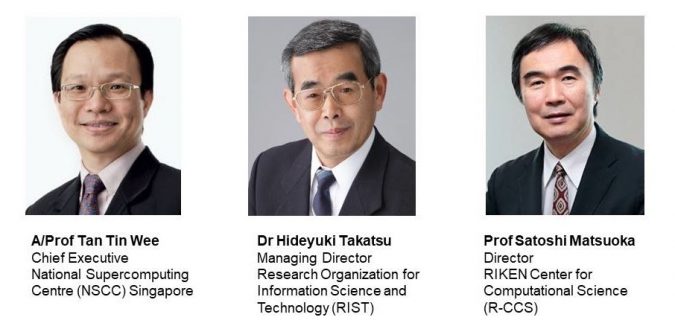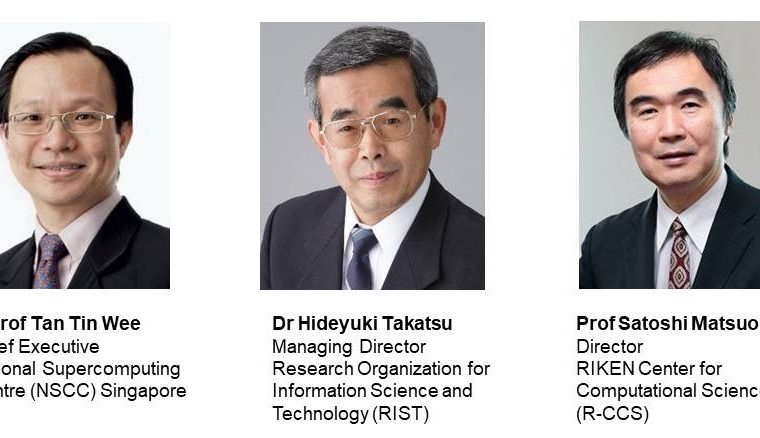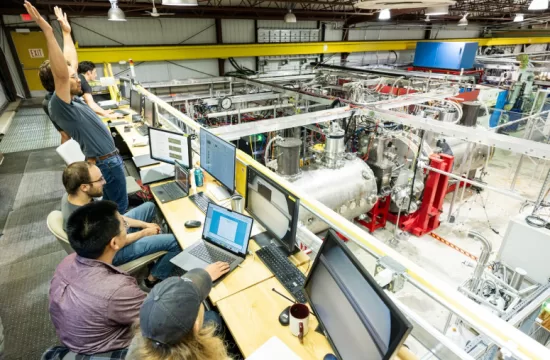Singapore — Singapore researchers will be amongst the first in the world to be granted regular access to Japan’s Fugaku supercomputer through an annual Call for Projects to Fugaku dedicated to them, which is facilitated by NSCC in partnership with RIST. RIST is the general incorporated foundation that is responsible for the promotion of the shared use of Japan’s collective supercomputing resources across the entire country, including those of the supercomputer Fugaku.
The agreement which was signed between RIST and NSCC is a milestone for both organizations. The agreement builds on an earlier Memorandum of Understanding on Information Exchange Concerning Promotion of Supercomputer Utilization between RIST and NSCC.
Since its debut in June 2020, Fugaku has retained its ranking as the reigning top supercomputer in the world in the latest November 2021 issue of the global TOP500 supercomputer list. With an amazing 442 PFLOPS of compute power, Fugaku is about three times more powerful than its closest competitor.
The annual Call for Projects to Fugaku via NSCC and RIST will be in addition to NSCC’s national Call for Projects, which is already held every six months for all Singapore-based research projects. The additional access to Fugaku will give Singapore researchers more options for resources to meet their high-performance computing (HPC) needs. Singapore researchers will also have upgraded national HPC resources to tap on when Singapore’s newest supercomputer system, with an aggregated raw, compute power of up to 10 PFLOPS, comes online in the first half of 2022.

“The trial access to Fugaku last year garnered keen interest from Singapore research teams,” said Associate Professor Tan Tin Wee, Chief Executive of NSCC explaining that a total of eight research teams had applied for resources via the Fugaku Preliminary Use Projects, out of which six projects were approved for resources. The approved Singapore projects covered COVID-related biomedical research, cancer research, and materials science research.
“NSCC’s new partnership with RIST will ensure that Singapore researchers have a regular path to access Fugaku’s ARM chip-based architecture and compute power. Tapping on such resources helps broaden the experience of the Singapore HPC community by getting access to CPU and interconnect technologies which are not available in Singapore. This collaboration between the HPC organizations of Singapore and Japan further cements our already established links and contributes to the development of the high-performance computing field in both countries.”
“Singapore is placed as one of the leading countries in the HPC field in Asia Oceania,” said Dr Hideyuki Takatsu, Managing Director of RIST, adding that RIST has enjoyed close cooperation with NSCC since its inception. “Our agreement with NSCC, which allows Singapore researchers to apply for accessible Fugaku resources through NSCC and RIST, is a new step to expanding international Fugaku utilization. I believe that this will promote international cooperative research and worldwide dissemination of Japanese application software and Fugaku’s ARM chip-based architecture.”
“We have been collaborating with NSCC for some time formulating a relationship as national supercomputing centers of respective nations,” said Prof Satoshi Matsuoka, Director of RIKEN Center for Computational Science (R-CCS). “We are delighted with this new MoU agreement between NSCC and RIST, in that we can further extend this now trilateral collaboration to bring forth unprecedented supercomputing capabilities to the researchers in Singapore.”
The new Call for Projects to Fugaku will be launched in Singapore in December 2021. Upon approval, the first projects can expect to start using the Fugaku system from April 2022. The maximum amount of Fugaku resources available to Singapore researchers annually will be capped at 1M Node Hours (NH), or about 5 research projects, with a maximum duration of one year for each project to use the approved resources.








